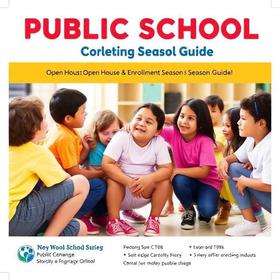Top Rankings
Meriden School District ranks among the top 20% of public school district in Connecticut for:
Category
Attribute
Community Size
Largest student body (number of students) (Top 1%)
For the 2025-26 school year, there are 8 public preschools serving 3,649 students in Meriden School District. This district's average pre testing ranking is 3/10, which is in the bottom 50% of public pre schools in Connecticut.
Public Preschools in Meriden School District have an average math proficiency score of 46% (versus the Connecticut public pre school average of 36%), and reading proficiency score of 46% (versus the 42% statewide average).
Minority enrollment is 81% of the student body (majority Hispanic), which is more than the Connecticut public preschool average of 59% (majority Hispanic).
Overview
This School District
This State (CT)
# Schools
13 Schools
345 Schools
# Students
8,129 Students
132,954 Students
# Teachers
581 Teachers
10,546 Teachers
Student-Teacher Ratio
14:1
14:1
Student By Grade
District Rank
Meriden School District, which is ranked within the bottom 50% of all 197 school districts in Connecticut (based off of combined math and reading proficiency testing data) for the 2022-2023 school year.
The school district's graduation rate of 85% has increased from 79% over five school years.
Overall District Rank
#144 out of 198 school districts
(Bottom 50%)
(Bottom 50%)
Math Test Scores (% Proficient)
34%
41%
Reading/Language Arts Test Scores (% Proficient)
42%
50%
Science Test Scores (% Proficient)
33%
47%
Graduation Rate
85%
89%
Students by Ethnicity:
Diversity Score
0.57
0.70
% American Indian
n/a
n/a
% Asian
2%
5%
% Hispanic
62%
34%
% Black
11%
15%
% White
20%
41%
% Hawaiian
n/a
n/a
% Two or more races
5%
5%
All Ethnic Groups
District Revenue and Spending
The revenue/student of $20,906 in this school district is less than the state median of $26,157. The school district revenue/student has declined by 6% over four school years.
The school district's spending/student of $20,345 is less than the state median of $25,225. The school district spending/student has declined by 6% over four school years.
Total Revenue
$170 MM
$12,920 MM
Spending
$165 MM
$12,459 MM
Revenue / Student
$20,906
$26,157
Spending / Student
$20,345
$25,225
Best Meriden School District Public Preschools (2025-26)
School
(Math and Reading Proficiency)
(Math and Reading Proficiency)
Location
Quick Facts
Rank: #11.
Thomas Hooker School
(Math: 60-64% | Reading: 65-69%)
Rank:
Rank:
8/
Top 30%10
70 Overlook Rd.
Meriden, CT 06450
(203) 237-8839
Meriden, CT 06450
(203) 237-8839
Gr: PK-5 | 338 students Student-teacher ratio: 14:1 Minority enrollment: 73%
Rank: #22.
Israel Putnam School
(Math: 53% | Reading: 47%)
Rank:
Rank:
6/
Top 50%10
133 Parker Ave.
Meriden, CT 06450
(203) 237-8493
Meriden, CT 06450
(203) 237-8493
Gr: PK-5 | 482 students Student-teacher ratio: 15:1 Minority enrollment: 81%
Rank: #33.
Benjamin Franklin School
(Math: 50-54% | Reading: 45-49%)
Rank:
Rank:
6/
Top 50%10
426 West Main St.
Meriden, CT 06450
(203) 235-7997
Meriden, CT 06450
(203) 235-7997
Gr: PK-5 | 350 students Student-teacher ratio: 11:1 Minority enrollment: 73%
Rank: #44.
Hanover School
(Math: 44% | Reading: 45-49%)
Rank:
Rank:
5/
Bottom 50%10
208 Main St.
Meriden, CT 06450
(203) 235-6359
Meriden, CT 06450
(203) 235-6359
Gr: PK-5 | 468 students Student-teacher ratio: 12:1 Minority enrollment: 78%
Rank: #55.
Nathan Hale School
(Math: 43% | Reading: 47%)
Rank:
Rank:
5/
Bottom 50%10
277 Atkins St. Ext.
Meriden, CT 06450
(203) 237-7486
Meriden, CT 06450
(203) 237-7486
Gr: PK-5 | 504 students Student-teacher ratio: 14:1 Minority enrollment: 80%
Rank: #66.
John Barry School
(Math: 46% | Reading: 41%)
Rank:
Rank:
5/
Bottom 50%10
124 Columbia St.
Meriden, CT 06450
(203) 237-8831
Meriden, CT 06450
(203) 237-8831
Gr: PK-5 | 451 students Student-teacher ratio: 13:1 Minority enrollment: 90%
Rank: #77.
Casimir Pulaski School
(Math: 40% | Reading: 40%)
Rank:
Rank:
4/
Bottom 50%10
100 Clearview Ave.
Meriden, CT 06450
(203) 238-1273
Meriden, CT 06450
(203) 238-1273
Gr: PK-5 | 578 students Student-teacher ratio: 14:1 Minority enrollment: 86%
Rank: #88.
Roger Sherman School
(Math: 38% | Reading: 41%)
Rank:
Rank:
4/
Bottom 50%10
64 North Pearl St.
Meriden, CT 06450
(203) 238-1286
Meriden, CT 06450
(203) 238-1286
Gr: PK-5 | 478 students Student-teacher ratio: 14:1 Minority enrollment: 86%
Recent Articles

Charter Schools vs Public Schools 2025: Key Differences & Trends
Explore updated 2025 insights comparing charter schools vs public schools, enrollment, academic outcomes, funding, and real-world examples for families and educators.

Are Public Schools Ready for the 21st Century? 2025 Update
Explore 2025 insights on whether public schools are ready for the 21st century, covering performance, technology, equity, funding, and future-ready learning.

Public School Open House & Enrollment Season Guide
A parent-focused guide to the public school open house and enrollment season, with expert questions, timelines, and decision tips.





